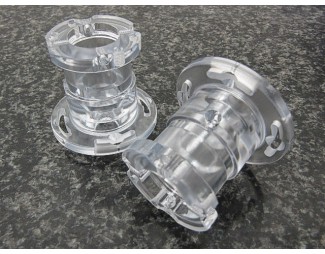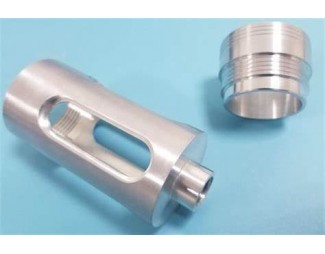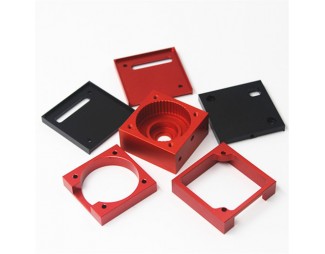CNC Machining Titanium
Titanium is a unique material that can be used in many different ways. It’s super strong, very light, and doesn’t easily rust. These unique qualities of titanium and its mixtures make them great for creating rapid prototyping. Titanium properties include:
Higher Strength-to-Weight Ratio
One of titanium’s most notable attributes is its exceptionally lightweight nature. Titanium has the most elevated strength-to-weight ratio of any element. Its density, which is 4.5g/cm3, is relatively lower than steel, which is 7.8g/cm3, and the strength of titanium is 288kNm/kg. These properties describe why titanium is the reason for the jet engines’ drive-to-weight ratio improvement. In the aerospace industry, this property translates to reduced fuel consumption and improved overall aircraft performance. Lightweight materials are of paramount importance when designing and manufacturing aerospace titanium parts.
Corrosion Resistance
Titanium’s resistance to corrosion is another standout characteristic. It can withstand exposure to hydrochloric acids, dilute sulfuric and chloride solutions, and most natural acids without rusting or deteriorating. This exceptional corrosion resistance is invaluable in medical titanium applications, where the metal is often employed in implants and surgical instruments that come into contact with bodily fluids. Maintaining its integrity and hygiene is a critical factor for these applications.
Biocompatibility
Biocompatibility is a crucial property that sets titanium apart in medical applications. It doesn’t provoke adverse reactions within the human body, making it an ideal choice for implants and prosthetic devices. This biocompatibility ensures that the body readily accepts titanium without causing harmful side effects, a prerequisite for any material used in medical procedures.
Thermal Properties
Despite its numerous advantages, titanium does present specific machining challenges. Titanium has a low thermal conductivity at 21.9 W/(m-K), which can result in heat buildup during the machining process. This heat can, in turn, compromise the quality of the finished product. Furthermore, titanium is notorious for its reactivity with cutting tools, accelerating titanium tool wear and requiring frequent changes.
Mechanical and Electrical Properties
Titanium is quite ductile and has a tensile strength; its lowest yield of strength is around 240-241 MPa in pure grade 1. Its hardness is between 70-74, and its splitting toughness of 66 MPa-m1/2. Titanium pure grade 11 Young’s modulus of elasticity is 116 GPA and a shear modulus of 44 GPA.
Titanium is known for its lower electrical conductivity, which is 3.1% IACS. This is a downside that makes it unusable for electrical conductivity. However, the combination of its mechanical and physical properties compensates for such a downside.
Element Properties
|
PROPERTIES |
VALUE |
|
Atomic number |
22 |
|
Group |
4 |
|
Melting Point |
1941 K (1668 °C, 3034 °F) |
|
Boiling Point |
3560 K (3287 °C, 5949 °F) |
|
Atomic Weight |
47.867 |
|
Density |
4.506g/cm3 |
|
Thermal conductivity |
21.9 W/(m-K) |
|
Heat of fusion |
14.15 kJ/mol |
|
Heat of vaporization |
425 kJ/mol |
|
Solidus/liquidus |
1725 °C (3135 °F) |
A table showing the different properties of titanium and their corresponding values
Benefits of CNC Machining Titanium
High Precision
Material Efficiency
Complex Geometries
Repeatability
Surface Finish
Tool Life Management
Cost-Effective for Small to Medium Production Runs
Environmental Friendliness
If you have any prototyping project please feel free to contact: enquiry@abcrapid.com.
Search
Recent Post













